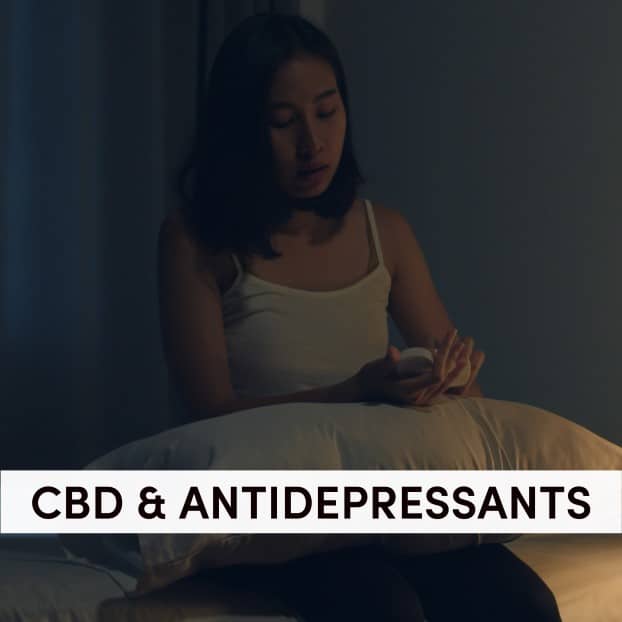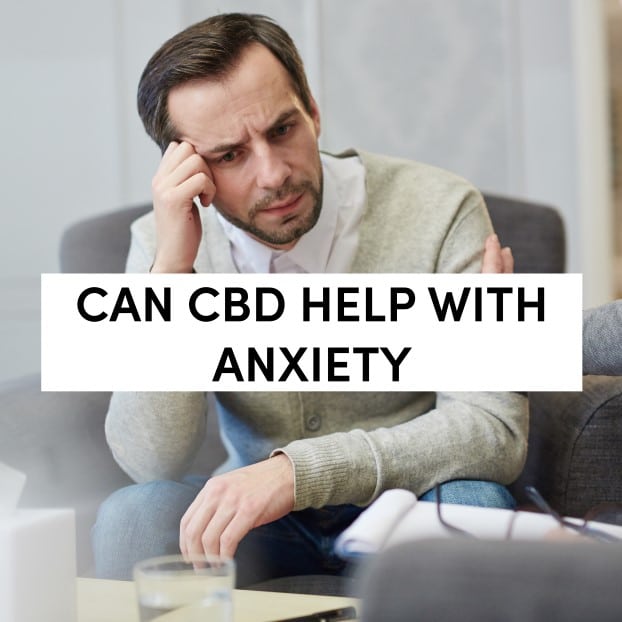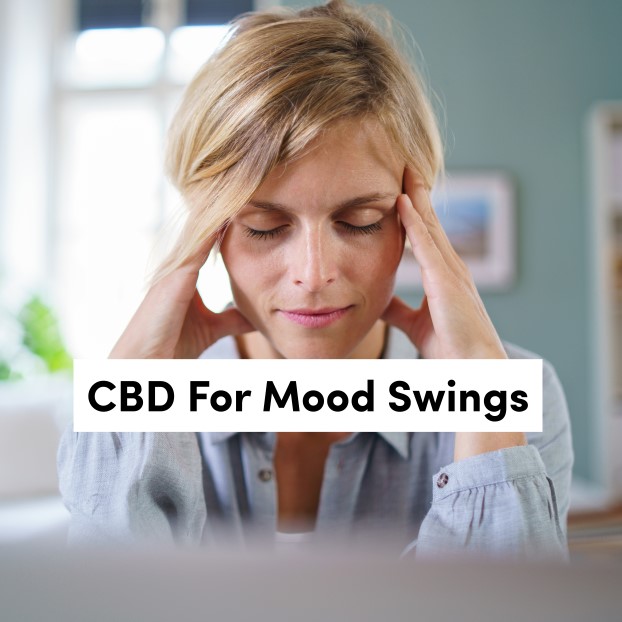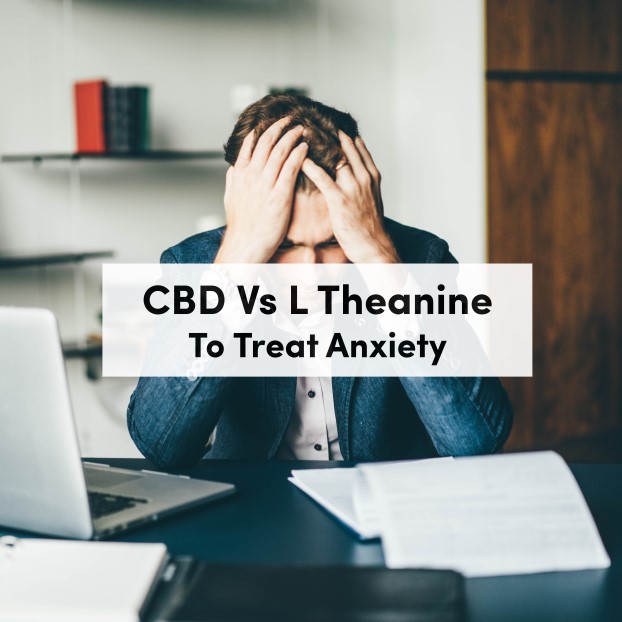Cracking the CBD And Antidepressants Code

Posted on April 14th, 2021
 Grief, sadness, and anxiety are part of being human. Everyone experiences these feelings and emotions from time to time, but they usually go away after a while. Depression, or major depressive disorder, however, is a different story.
Grief, sadness, and anxiety are part of being human. Everyone experiences these feelings and emotions from time to time, but they usually go away after a while. Depression, or major depressive disorder, however, is a different story.
Depression is a mood disorder that can bring about lasting symptoms such as:
- Low energy.
- Loss of appetite.
- Overwhelming sadness.
- A lack of interest in things that used to spark joy or bring pleasure.
Depression is not uncommon; as a matter of fact, it affects a massive percentage of the population at any given time. According to data released by the National Institute of Mental Health, about 16.2 million American adults experienced at least one major depressive episode in 2016. There are many things that can trigger depression. The episode can be mild or severe, depending on the circumstances that caused it. If left untreated, depression can give way to several health complications, including putting the depressed person’s life at risk.
Fortunately, depression is treatable, and there are many effective treatment options for it, like:
- Using antidepressant medication
- Diet
- Exercise
- Therapy
- And, most recently, there’s hope for CBD
But can you use CBD and antidepressants together? Is CBD oil an alternative for antidepressants? In this article, we’ll learn about depression and the potential for CBD products to alleviate its symptoms.
What is Depression?
Depression is a mental disorder that interferes with someone’s mood, and it makes them feel sad and lose interest in everything. When they experience depression, they feel lost, and in most cases, they are unable to explain what is happening to them. It is a disturbing feeling, and people need to know how to identify whenever they experience it. Being conscious of it will allow them to take the necessary steps to curb this disorder before it progresses and becomes life-threatening.
Common Symptoms of Depression
- Lack of any interest in doing all the fun activities you normally enjoy.
- Wanting to sleep all the time.
- Lost desire to have sex.
- Restlessness and feeling worried all the time.
- Recurring fatigue.
- Extreme difficulty in concentrating.
- A feeling of being worthless.
- Constantly thinking about committing suicide.
Different Types of Depression
There are also different types of depression, depending on what triggered them, how long they last, and when they occur. These are:
Major Depression
This is a major depressive disorder that you may experience if you feel depressed almost all the time. Its symptoms include weight loss, feeling worthless, thinking of committing suicide, and feeling agitated.
Persistent Depressive Disorder
This type of depression lasts for at least two years, and it associates with low self-esteem, constant fatigue, and recurring feeling of hopelessness.
Bipolar Disorder
Bipolar disorder is a type of depression in which someone has intense periods of high energy at one time. During other times, however, they experience extremely depressive moments.
Seasonal Affective Disorder
This is a type of major depression that happens seasonally. It mainly occurs during the winter season when some parts of the world experience shorter days than nights. Meaning, people have only shorter periods of sunlight which we need to produce vitamin D. Lack of vitamin D is something many depressed patients have in common at the time of their episodes, according to research.
Psychotic Depression
This is also another type of major depression, but it also associates with some psychotic symptoms on top of that. Paranoia, extreme delusions, and experiencing hallucinations are features of this disorder.
Peripartum Depression
Refers to depressive episodes that begin during pregnancy or on the first four weeks after delivery.
Situational Depression
This is the type of depression in someone’s life when they have extreme difficulty coping with a particular event happening in their life. For instance, the loss of a loved one can lead to situational depression.
Why Do We Get Depressed?
We experience depression when we get a lot of stress, and we are unable to cope with it. When stressed, our brain triggers a stress response phenomenon that starts in the hypothalamus. The hypothalamus forms a trio with the adrenal and pituitary glands, and they control several hormonal activities that play a huge role in depression.
The hypothalamus is responsible for secreting the corticotropin-releasing hormone (CRH), which readies the body for any looming physical or emotional threat. CRH also affects the amygdala, cerebral cortex, brain stem, and neurotransmitters’ concentration throughout the brain.
Neurotransmitters are chemical messengers that play unique roles in creating an individual’s brain chemistry. Disturbances in hormonal systems and neurotransmitters, therefore, may well play a role in depression.
Normally, after a stressful situation passes, a feedback loop allows the body to maintain hormonal balance. It also ensures neurotransmitters release or sees discarding accordingly. In some cases, though, the floodgates fail to close correctly. In those cases, the primary stress hormone cortisol, and norepinephrine (both a neurotransmitter and stress hormone), stay high or rise too often. This can lead to depression and other problems such as asthma, high blood pressure, and immune suppression.
Are Our Bodies Able to Fight Depression on Its Own?
Our bodies are only able to fight depression when it is mild. If the depression is severe, additional medication and therapy are what will help you cope with it. You can only know whether your depression is mild or extreme if you visit a doctor for a proper diagnosis. It would be best never to assume that your body can fight depression independently and seek help ASAP.
CBD And Antidepressants – What Are Antidepressants?
Antidepressants are a form of medication made to treat depression by alleviating its symptoms. These medications usually correct the imbalances in the brain that lead to depression. Antidepressant development started more than 60 years ago but only saw extensive adoption in the last 20 years. Below is a list of some of the main types of antidepressants:
– Tricyclic antidepressants: This type of antidepressant treat depression and are able to even relieve chronic pain in some cases.
– SNRI and SSRI: These treat major depression.
– Monoamine oxidase inhibitors: Also used to treat major depression.
– Noradrenaline and specific serotonergic antidepressants: These treat personality disorders brought by depression.
How Do Antidepressants Work?
Antidepressants achieve their desired effect by boosting noradrenaline and serotonin neurotransmitters’ chemical activity, which regulate your mood. These neurotransmitters convey messages between the brain and the body’s nerves, affecting your general mood. Antidepressants generally boost how those two handle the messages, and it helps correct their imbalances, ultimately lifting your mood.
In simple terms, antidepressants ensure that hormones that control emotion are at optimum levels. That significantly helps boost mood, ensuring they sleep well, have an appetite, improved concentration, and lifts their mood.
How Frequently Do You Need to Take Antidepressants?
When dealing with depression, you need to include antidepressants in your daily routine to experience the benefits. Patients need to understand that it takes time for antidepressant medication to kick in. The full effects of antidepressant medication may occur anywhere from 1 to 2 months.
Do You Need to Take Antidepressants for Life to Keep the Effect?
No, you do not need to keep taking antidepressant medication for life so that the effect can last. Nonetheless, even when you start noticing the positive effects of it, you should not stop taking the medication. That might make the depression come back again. It is best to take the antidepressant medication for up to six months before quitting. For those looking to use CBD and antidepressants together, speak to your doctor about drug interaction and dosage.
Side Effects of Antidepressants
While antidepressants have many positive impacts, they also have some side effects, those are:
- Insomnia
- Anxiety
- Drowsiness
- Double vision
- Excessive eating
- Dizziness
- Addiction
- Withdrawal
The last two, addiction and withdrawal, are a cause of concern. Recently, many former users brought attention to how it altered their behavior in undesirable ways, sometimes for years. They’ve even taken their grievances to court against the manufacturers, alleging they knew of the severeness of the side effects.
CBD And Antidepressants – What is CBD?
CBD or cannabidiol is one of more than 100 compounds known as cannabinoids. Cannabinoids, including CBD and THC (tetrahydrocannabinol), occur naturally within the cannabis plant.
While you may think that anything associated with cannabis will make you high, CBD is not psychoactive, unlike THC.
CBD gained popularity in the health and wellness industry. A growing body of research into the potential health benefits of CBD highlights its potential to address anxiety and depression. Anecdotal evidence and initial findings of some studies into CBD and depression look very promising.
CBD Effects
CBD oil has many effects on the body, and we outlined some below.
Pain-relief: In general, endocannabinoids relay information to the brain’s pain receptors when the body experiences pain. CBD is able to tamper with the pain neurotransmitters, reducing your perception of pain sensations.
Helps Manage Depression and Anxiety: Pharmaceutical drugs used to treat anxiety and depression usually have aggressive side effects. CBD can treat them likewise, yet, it has fewer side effects than pharmaceutical drugs. When someone with depression or anxiety uses CBD, it may help enhance brain receptors’ ability to act on serotonin, improving their mood.
It Helps with Chemotherapy Treatment: CBD is also helpful in reducing nausea, and vomiting caused resulting from chemotherapy.
Insomnia: Insomnia is a common feature of anxiety or depression. CBD helps reduce the symptoms of these disorders, which in turn helps get rid of insomnia and allows you a good night’s sleep.
CBD And Antidepressants – Is CBD An Alternative to Antidepressants?
Yes and no.
If you are taking antidepressants and haven’t experienced much improvement, you may be interested in trying CBD as an alternative. However, first, keep in mind that it’s never a smart idea to start using supplements without your doctor’s permission.
CBD may have a significant effect in relieving the symptoms of anxiety and depression. Yet, more research is necessary to assert how effective it is against major depressive syndrome.
That said, whether you want to use CBD as an alternative for antidepressant medication or wish to use CBD and antidepressants together, talk to your doctor first.
Depression is a real menace in today’s society. If you or a loved one is suffering from depression, you have to understand that it is treatable. When contemplating CBD and antidepressants, it mostly comes down to if you would risk experiencing the side effects. If the answer to that it’s a ‘no,’ CBD might be a better choice for you.





